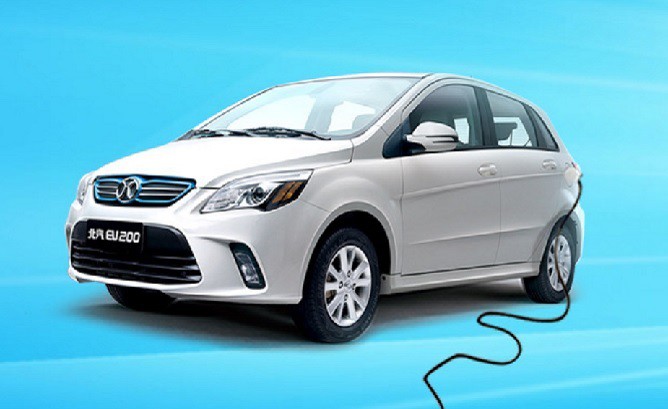This is not a time for global companies to sit around and rest on their laurels. Panasonic is pushing ahead with its partnership with Tesla Motors to build the Gigafactory in Nevada. Now it has also forged an alliance with Beijing Automotive Group (BAIC) to manufacture electric car parts and components in China. Beijing Automotive is expected to have a 54% stake in the new company, with the remaining investment coming from Panasonic’s Chinese operations.
According to Kyodo News, Panasonic plans to manufacture parts and components, including climate control systems, for electrified vehicles. Sources say the deal was completed in May. Â The two companies will build a factory in Tianjin, a major city in northeast China.
Because China has the world’s largest new car market, major corporations are rushing to establish a presence within the country. In February 2016, Panasonic established a battery venture in China with Dalian Levear Electric Company. The partnership is a 50/50 joint venture. Its official name will be Panasonic Automotive Energy Dalian Co. Lithium ion battery production will start in the Chinese city of Dalian in 2017. The batteries produced there will supply the Chinese electric vehicle market Some will also be exported as well.
Beijing Automotive is an established player in China’s auto market. Its brands include BAIC, Beiqi, Changhe, Foton, Huanso, and Weiwang. Thhe company has manufacturing alliances with foreign partners Hyundai, Mercedes-Benz, and Suzuki, according to China Auto Web. One of its popular electric cars in China has been the BAIC EV200.
Foreign companies that want to manufacture products in China are required to work with a local partner. Making products in China means the finished goods will be exempt from substantial import duties levied by the Chinese government on imported products. For instance, the duty on imported cars is 25%.
LG Chem is another battery company getting more deeply involved with manufacturing components for electric cars. As part of its partnership with Chevrolet, it is not only supply the battery for the upcoming Chevy Bolt, it is also making the climate control system, instrument cluster, and infotainment touchscreen. One of the byproducts of the electric car revolution is that car companies are increasingly becoming assemblers of components made by others rather than manufacturers.
Source: Cleantechnica



